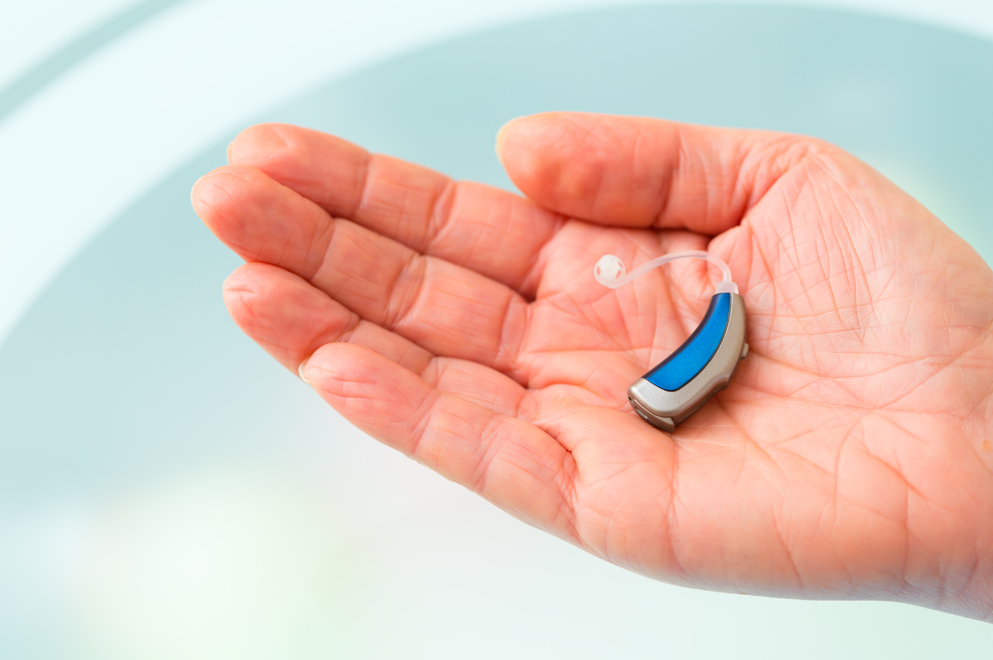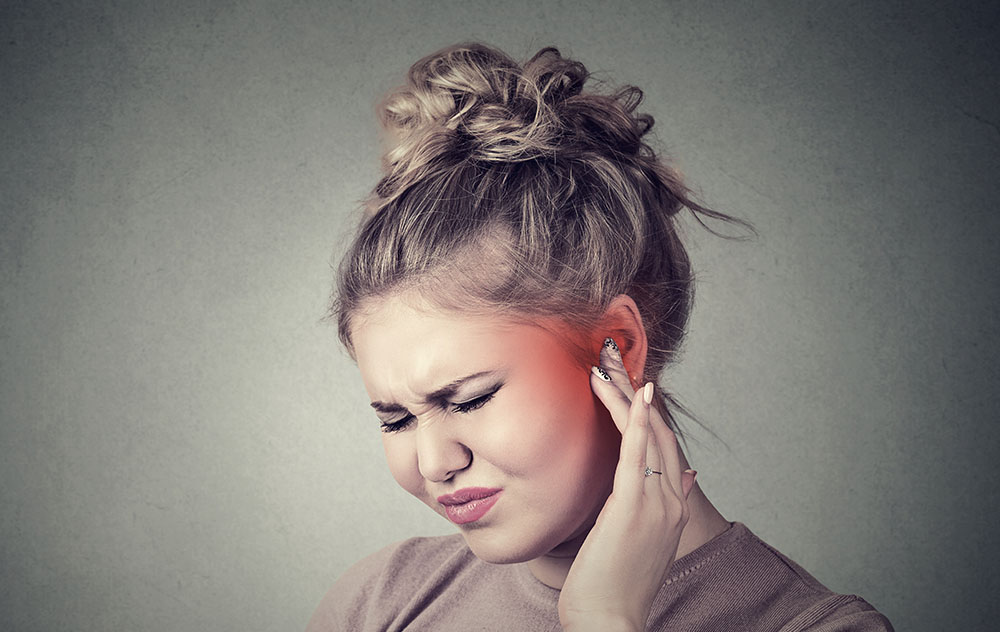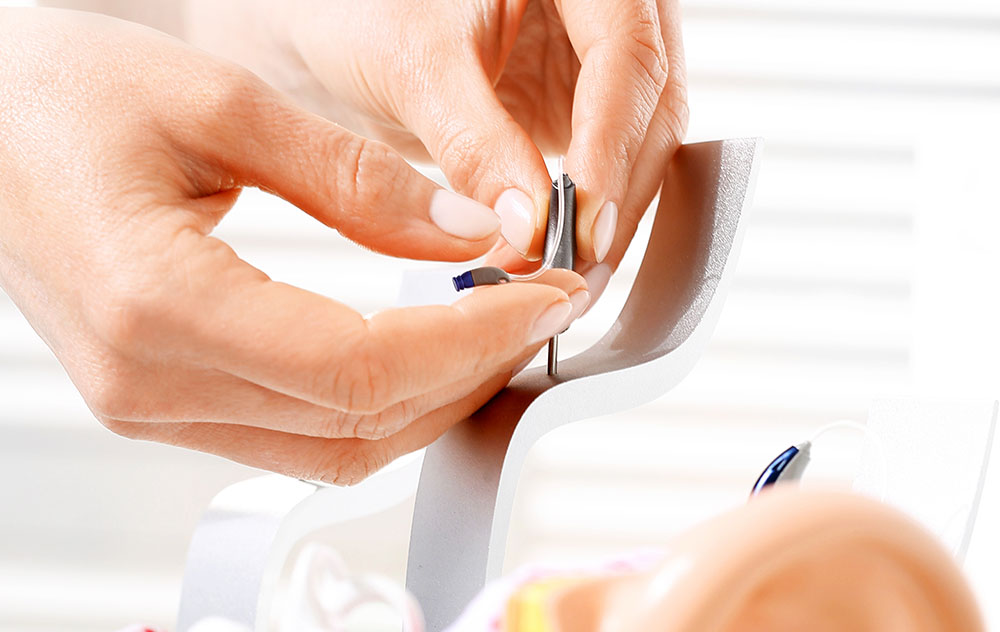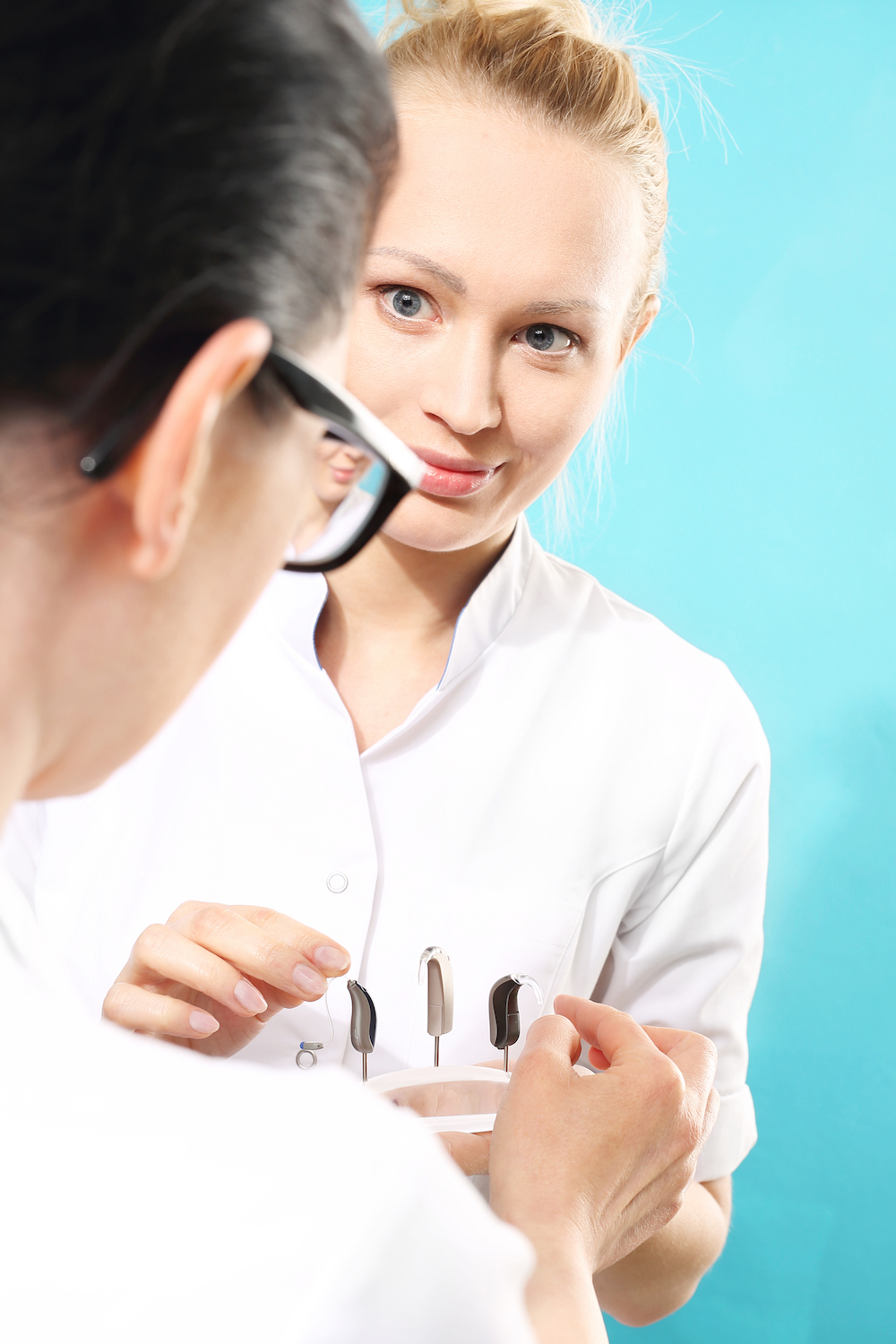Total Cost Involved- Hearing Care
Who doesn’t like to save a buck? In fact, who doesn’t like to save a LOT of bucks?
When it comes to saving money, that money is saved on purchasing the exact same 2 items, one costing less than the other.
Hearing healthcare is never the same between 2 providers, because no two providers are the same!
Here, we will show you things to consider when evaluating the TCI (total cost involved) with your hearing healthcare.
Oftentimes it’s worth the additional spend to receive the best care available. There are many things to consider when it comes to what kind of hearing healthcare you receive:
- What type of devices are you receiving?
- What is the warranty period for the devices AND the services?
- How much is the deductible for loss and damage?
- How are you notified about the end of warranty period?
- What additional services and expenses are included with warranty service
- What kinds of services are optional/additional and what kinds of services are essential/required?
- Could you please provide me a list of the services that are available, and their associated fees?
- How often should I expect to replace my hearing aids/devices
** This is a very loaded question and the answer will tell you VOLUMES about your provider or prospective provider. Hearing aids are sensitive, sophisticated, computer driven prescription medical devices that live in a warm, moist environment. Similar to your cell phone, earbuds, computers, tablets etc, they all have a sunset- meaning that they are either outdated by emerging technologies or the circuits fail from use and exposure.Of course there is a person out there using the original Apple Iphone from 2007, and I’m sure it makes phone calls! It is, however, severely restricted in performance, and use, compared to the current generation of cell phones.
Think of hearing aids like cell phones- you can upgrade them often, if you like. Or you can hold onto them as long as they benefit you. You should expect a 5 year life from them, so as not to be disappointed by expecting them to be a once in a lifetime purchase. It is just unlikely to happen… - What insurance companies is your provider contracted with?
Alternatively: With which insurance companies are you participating providers? - Will you verify my insurance benefits prior to my appointment? Should I verify it myself?
All of the answers to these questions should give you a pretty good jump off point to discuss what the total cost of hearing health care will be over a 5 year period.
From our experience here at Evolution hearing in the past 36 months, optimal hearing health care should cost around $3400 (this is an average) for a pair of devices, and around $492 each year for services, repair and diagnostic testing to keep your device prescription updated. So, you should expect to pay around $5900 over a 5 year period for excellent quality hearing health care, Total Cost Involved.
** Every patient is different, and some patients will need more services, and some fewer. Your individual costs may vary.
For perspective as of June 2023, JD Power reports the average cell phone consumer pays $144 a month for their bill.
That’s a 5 year TCI(total cost involved) of about $8640 compared to hearing health care of $5900.
What do you think about this? Does Hearing Healthcare compare favorably or poorly to smart phone billing, considering Total Cost Involved?
7 Steps To Prepare For Your Audiologist Appointment

Here are a few essential steps to ensure that you are well prepared for your audiology appointment, saving you time and energy. Check appointment times ahead of time and follow the suggested steps to ensure that you have a stress-free experience that answers all of your questions.
Step One
When preparing for your audiology appointment, you should take the time to write a list of the critical things you have noticed about your hearing loss or the impact that this is having on your daily life. You must make a record of any hearing loss you have experienced, writing down any relevant information and take the information you have gathered with you to your audiologist appointment.
Step Two
Take time to research different hearing aid devices currently available on the market. It may also be a great idea to look at the types of devices available before your audiologist appointment so that you can discuss what is right for you with the audiologist. When looking at your options, you should also consider your budget and how much you intend to spend on the hearing aid device. There are many different styles and types of hearing aid devices currently available. These include several that link to new technology, such as in the ear (ITE), behind the ear (BTE) and in the canal (ITC). Why not visit the Evolution HEARing website to look at the different colors, quality and styles on offer.
Step Three
What hobbies and activities do you love to do in your spare time? Maybe you enjoy going to loud gigs and concerts or sing in a choir. Alternatively, you use noisy power tools in your place of work, and these could all have a dramatic impact on your hearing, mainly if you have not used ear protection. Your audiologist may discuss safe practices with you, or you could ask for further advice on how to act using specific techniques and equipment to prevent any damage.
Step Four
It may be a good idea to write a list of any medications you are taking, as some medicines can cause side effects that impact your hearing.
Some of the following medications lead to hearing loss: aspirin, non-steroidal anti-inflammatory (NSAIDs), which include ibuprofen, and naproxen.
If you are taking the following antibiotics, you should also mention this to the audiologist: aminoglycosides, gentamicin, streptomycin and neomycin. Certain medicines used to treat cancer are also known for causing hearing loss: cyclophosphamide, cistapin, and bleomycin.
If you are taking any of these medications, you must not stop but seek advice from your audiologist and medical teams. If the medicine is the cause of any hearing loss, you should discuss this and seek alternative medications to reduce any further loss of hearing with the audiologist.
Step Five
The audiologist may also want to know about your medical history as some conditions, such as diabetes, heart disease and COVID-19, among other illnesses, may be linked to hearing loss. By providing the audiologist with a full picture of your medical history, the audiologist can advise you more effectively on medicines that may need to be changed to prevent further hearing loss.
Step Six
What do you find the most difficult regarding your hearing? Have you noticed any differences? For example, are you finding it difficult to hear people on a phone call, or do you struggle to make out what people say on your favorite daytime program on TV?
This information may be crucial in helping your audiologist to find the right solution and ensuring that the correct hearing device is recommended to meet your needs. Your hearing can change throughout your life. But being aware of any changes, and acting quickly, can help prevent any further hearing loss.
Step Seven
Your appointment with the audiologist should be as stress-free as possible, but it may be useful to take a family member or friend with you, as you could receive a lot of helpful information at the appointment with the audiologist. Plus, having a second pair of ears and someone supporting you can remind you of any information you have forgotten, enabling the audiologist to gain a greater picture of the symptoms you are experiencing and the treatments they will provide to alleviate any hearing loss.
To learn more about Evolution HEARing and to book your audiology appointment with one of our audiologists: Call Charlottesville, VA: (434) 216-3599
What is the Difference Between an Audiologist and a Hearing Instrument Specialist?

When you know someone with hearing loss or have it yourself, it can sometimes be a little confusing when you start to see different types of healthcare professionals. The most common professional healthcare workers that you will notice about your hearing loss will be either a qualified hearing instrument specialist or an audiologist. You may even see both. You will usually start your treatment with an audiologist. Then progress to hearing instrument specialists to have hearing aids and earmolds fitted and then maintained throughout.
Understanding your options
One of the many questions that people often ask about their hearing loss treatment is which hearing professional they should be seeing. Just like in most medical areas, there are several different types of practitioners with expertise with hearing loss treatment. You need to think about which service is going to meet your needs. It is highly likely that you will see both at different intervals throughout your treatment for hearing loss. Not everyone will know that there is a difference between an audiologist and a hearing instrument specialist and presume that they can carry out the same duties. This isn’t the case, but it is easy to see why.
Training and education
Audiologists and hearing instrument specialists carry out very similar roles. However, the training requirements are slightly different. Often an audiologist will complete a more extensive training regime to be able to treat and diagnose patients with a wider variety of medical issues such as balance and ear infections. You will find that an audiologist will have a minimum of a Master’s Degree in audiology with many even having a Doctorate in their respective fields. This means that you can expect them to have trained between six and eight years to become fully qualified. In contrast, a hearing instrument specialist will prepare for vocation and applied skills instead of research. They only require a high school diploma in order or them to obtain a license to practice.
When you look at the scope of practice, this is the main difference you will see between a hearing instrument specialist and an audiologist. As you go through any treatment, you will naturally become more familiar with the different duties. This means you will know who you need to see for what.
Working with patients
An audiologist has the authority to work with a broader array of people, ranging from infants, children to adults, elderly and people with special needs. They are specially trained to perform full diagnostic evaluations of the patient’s complete auditory system, including the outer ear and the brain. If you don’t know the cause of your hearing loss, then it’s likely that you will be referred to see an audiologist so they can help to figure out the possible cause. Audiologists are mainly concerned with the pathology behind hearing loss, so they’re skills allow them to be specialists who have their main focus as finding the root cause of any hearing loss. Part of being an audiologist includes been able to educate different people, including family members about the effects of hearing loss, how to manage hearing loss and provide in-depth details about any treatments, care needs and future examinations. You will find the most audiologists will practice within their practice or a hospital, and they will work a range of hours to suit their clientele.
A hearing instrument specialist, in comparison, has the role of performing hearing evaluations for the fitting of hearing aids. When it comes to having your hearing aids fitted, maintained and altered, these are the health care professionals that you will see. They will also work with you on any hearing aid care and troubleshooting. Whereas audiologists work with a wide range of patients, you will find that hearing instrument specialists only work with the adult population.
Fitting hearing aids
This means that if you have an infant or child that requires hearing aids, they will need to see an audiologist instead. Hearing instrument specialists aren’t involved with the diagnostics around hearing loss; they are solely responsible for the programming of hearing aids. Having fewer qualifications compared to an audiologist doesn’t mean that you’re receiving less of a service, you will find that many hearing instrument specialists have extensive training and experience which means they’re highly efficient at what they do. It just means that if you have any further need for investigation or you are yet to receive a diagnosis, you will get referred back to an audiologist.
The best way to learn more about the differences between audiologists and hearing instrument specialists is to give Evolution Hearing a call today.
How To Convince A Family Member To Wear A Hearing Aid?

It is an unfortunate fact that people are happy to put their hearing on the back burner. While if your family member needed glasses, they would get them. Or they needed to have dental treatment; it would most likely be booked – hearing seems to fall by the wayside.
A study by the International Journal of Audiology found that there are up to 80% of 55-74-year-olds who would benefit from hearing aids. While many people know that their hearing is declining and choose to do nothing about it, others simply aren’t aware.
Here are some of the reason you might hear behind not wearing a hearing aid
- A hearing aid is too expensive
- I don’t like how hearing aids look
- My hearing isn’t that bad
- They are too hard to use
- Uncomfortable to wear every day
It is important that you support the person, and rather than tell them why they are wrong, look for solutions that answer each of their issues.
What You Can Do To Help
Time to talk
Find some time in your week to have a real discussion about it. It can feel like you are badgering them into wearing a hearing aid, and that can often end in disaster. Get to the bottom of why they don’t want to wear it. It can help to speak to an audiologist to get the facts about why they should be wearing a hearing aid.
Combat their anxiety with facts and benefits.
One of the key areas that you can impress upon them the seriousness of the issue is that cognitive decline is linked with hearing loss.
In it together
You are playing a supporting role, but it is important that the person knows that it doesn’t just impact them. When a person has hearing loss, they can often forget how it impacts other people. It means that people around them need to have their own TV and radio at a higher volume. They may often have to repeat themselves.
Everyone is adapting, which will make your family member less likely to realize there is a problem.
If everyone is making compromises, they may not truly realize the extent of their hearing loss or how it affects those around them.
Offer in-person support
It may be that your family member is confident about the language used when they are discussing their hearing. In this case, you can offer and insist that you arrange or attend their next appointment with them. You can write down any questions they may have in advance so that you can cover everything you need.
It is also a good idea for you to take notes so that you can go over what was said, what your next steps are, and how you can make the process easy.
Your audiologist will be able to let your family member try on different hearing aids, hear more about how to take care of them, and more.
Benefits
Of course, the biggest bonus is that they will have better hearing. However, that can happen in a lot of different ways. Hearing aids are now cooler and have more utility than ever. And while not everyone will want every piece of technology, but there are some great options:
- There are hearing aids with fall alerts; they can send out a notification if the wearer has an accident
- Bluetooth connections can connect your hearing aid to your phone or tablet so that you can listen in the highest quality available
- There are some hearing aids that can track your activity, including the number of steps
Types of hearing aid
Many people still consider the old-fashioned hearing aid styles. There are a number of styles that they can choose from. An audiologist will go through your options with you, but here are a few that you might be able to consider:
- In the ear (ITE): These are the in the ear type of hearing aid. These come in two styles, one that fills the outer ear and the other that only fills the lower part of the ear.
- In the canal (ITC): Is a custom hearing aid that fits totally inside the ear and can barely be seen.
- Completely in the canal (CIC): CIC hearing ais fits inside the ear and is the least visible option.
- Behind the ear (BTE): The BTE is the more traditional hearing aid style
There are other options; if you want to find out more about how you can help your family member, then contact Evolution HEARing today at Charlottesville, VA: (434) 216-3599.
Caring For Hearing Aids And Earmolds

Hearing aids and earmolds are delicate pieces of equipment that need to have some attention to keep them in good working order. Before wearing hearing aids, it’s essential to make sure you perform a visual check, including a listening check to make sure they’re working correctly. As well as regular examinations with an audiologist, there is some self-maintenance that needs to be carried out on a daily and weekly basis.
When thinking about the care of hearing aids and earmolds, you first need to identify and familiarize yourself with the type. There are three primary ranges of hearing aids; in the ear, behind the ear and in the canal. They all have similar methods of care; the essentials include a visual inspection, listening check and cleaning of both the hearing aids and earmolds.
Inspecting your hearing aid
The visual inspection is something that should be carried out daily. It is best to perform checks that include looking over the earmold tubes for any holes, cracks or twists making sure the volume controls and switches are working correctly and not sticking. Also, check that the tubing fits snug and precisely onto the hearing aid and that the opening of the earmold is free of moisture and wax. You should have some necessary apparatus to help with this provided by your audiologist.
Whether you wear hearing aids yourself or care for someone who uses them, a regular listening check must be carried out ideally daily before putting them in. If you’re unable to do this, then it’s best to have regular check-ups with your audiologist, who will be able to make sure they’re performing as they should. You should be listening for any signs of static, crackling or whistling. By completing this daily, you’re able to notice straight away if they’re not working correctly and take the relevant action. If you ever see a problem, call your audiologist.
Cleaning your devices
The cleaning of your hearing aids and earmolds plays a vital role in keeping them working well and comfortable. You need to have a good routine and make sure you’re storing them in a safe and secure place when not in use.
Ideally, each day you should wipe the earmold over with a soft cloth or wipe each time you remove them; test the batteries in the hearing and change them if they’re low. Check the opening of the earmold for earwax as it can quickly build up. You need to be gentle when removing any wax from your earmolds; you will have a wax tool to help you complete this task. Make sure you never use any sharp objects to do this as it can easily damage the earmolds. To prevent dirt and moisture from building wipe the hearing aids over frequently. When not using your hearing aids make sure the battery compartment is pulled open and ensure the hearing aids are stored in a cool, dry place when not in use during the day and place them in a dehumidifier or dry-aid for overnight protection.
Developing a schedule
Some of the cleaning isn’t required as often. While some can be completed every week, whereas other tasks only need to be done as and when needed. You should look to maintain your hearing aids and earmolds by removing and replacing the tubing connecting the earmold and hearing aid. If they become loose, you might need to replace them sooner than a week. You need to carefully dry the earmolds and tubing using an air blower to remove any moisture built up through daily activities. Wash them with warm water, mild soap and wash the earmold when you need to, if you’re someone who has regular wax buildup, this might be required more often.
Proper storage
It’s essential to make sure you’re keeping your hearing aids and earmolds safe both when in use and not. Usually, you will have the use of a carry case for when out and about, a storage case for at home and a small case for travel. Other items you can expect to receive from your audiologist to help with the upkeep of your equipment will include, spare batteries, replacement tubing, wax-picker, dehumidifier, dryer case, listening equipment for the daily checks and tape which helps keep behind the ear hearing aids in place. You may require other pieces of equipment, depending on your needs. If you think you might be missing any of the tools, you need to look after your hearing aids and earmolds correctly you should speak to your audiologist.
To learn more about Evolution Hearing, call us at:
- Charlottesville, VA: (434) 216-3599
Can a Healthy Diet Lower the Risks of Hearing Loss?

Diet impacts almost all areas of your life. So, it isn’t a surprise that it has been shown that diet can impact your hearing too. A healthy and well-balanced diet will help you to have more energy, maintain a good weight and generally feel great.
So how does what you eat impact your hearing?
Research on hearing loss and healthy diets
In a study of more than 81,000 women, it was found that there was a correlation between what the participants ate and their hearing. The study took place over several years, from 1991- 2013. The data was examined, and the study was published in the Journal of Nutrition.
One of the most notable findings in studies done on hearing and dietary choices was that women who had a diet that had at least two portions of fish rich in omega-3 fatty acids were in the lower risk category when it came to hearing loss.
As well as a dietary approach to your hearing loss prevention, you can still lower your risk further by using the following guide:
- Don’t listen to music on a higher volume than 60% for more than 60 minutes.
- Always take a break when using headphones at least once an hour.
- Use hearing protection aids like earplugs when in a loud area.
What can you eat to lower your risk of hearing loss?
When you eat well, you will lower your chance of heart problems, diabetes, enjoy lower blood pressure and lower cholesterol levels too. The study found that people who ate a DASH diet or the Mediterranean diet were more likely to have less hearing loss.
The DASH diet comprises of:
- Whole grains, fruits, vegetables
- It is limiting foods that are high in saturated fats. This is full-fat dairy, palm kernel, palm oils, coconut oils and fatty meats.
- Reducing and limiting sugar – in sweets and drinks
- Having low-fat or fat-free dairy products
- Beans, fish, vegetable oils, nuts and poultry
What does DASH stand for? Dietary Approach to Stop Hypertension. The diet was initially created to help people reduce blood pressure. It was also found to help people lose weight and the link between lower risk of hearing loss and the DASH diet was also discovered.
What other foods are good for your hearing health?
Above covered the DASH diet but briefly mentioned the Mediterranean diet. The Mediterranean diet is great for your hearing health. It promotes a healthy intake of whole grains, herbs, olive oil, seafood and seeds. Dairy is only eaten occasionally, and red meat should be eaten rarely, if at all.
The basis behind these diets being so good for you is that they lower your risk of cardiovascular disease. So, the blood keeps pumping around your body and lowers the risk that the hair cells in the ear will be damaged.
There are also several foods that have a high amount of omega-3 fatty acids and zinc. These two boosts your immune system and can prevent sudden hearing loss. Here is a list of foods that can help you lower your risk of hearing loss:
- Artichokes
- Bananas
- Eggs
- Fortified milk
- Oranges
- Melons
- Kales
- Spinach
Magnesium is also a great addition to your diet.
Are there other measures I can take to protect my hearing?
While your diet can play a vital part in protecting your hearing and lowering your risk of hearing loss, there are other measures that you can take.
It is critical that you book regular appointments with your audiologist. Regular appointments will mean you will easily be able to spot if you have reduced hearing happening. If you notice any reduction in your hearing, it might be as simple as an ear wax build-up, but the sooner you seek treatment, the better.
Your hearing is something that you should be looking after as early in your life as possible. This is another reason it is essential that we instill these preventative measures in children as early as possible.
Many people don’t think about their hearing until they are already noticing a decline. This tends to be around the ages of 50 or 60. It is never too early to take care of your hearing. If you want to find out even more ways to prevent hearing loss or to discuss your hearing with an audiologist, then give our friendly and professional staff a call.
Call Evolution HEARing today at:
- Charlottesville, VA: (434) 216-3599
What Are The Most Effective Treatments For Tinnitus?

Tinnitus is an ear condition that many people find difficult to handle. It is often apparent to certain people as ringing, humming, clicking, or hissing in the ear, and is always there. For others, it can come and go. It is the sense of sound when there is no external noise.
Tinnitus is not a disorder or illness in itself, but a manifestation of an auditory system problem. It can be caused by a variety of factors, the most prevalent of which is noise-induced hearing impairment.
Unfortunately, there is no cure for it, and in some instances, it will go away on its own. For others, it is something that needs to be managed for life. The good news is that there are a lot of things you can do to control it and make life more bearable with it.
Strategies for dealing with tinnitus
Hearing aids
In many cases, tinnitus is synonymous with hearing loss. As the hearing loss advances, the brain changes the way it handles sound. Your audiologist can look at whether fitting you with a hearing aid can help you to manage your hearing impairment and therefore minimize the impact of tinnitus. It helps to modify the frequency of external sounds and can help to improve the way your brain processes the sound. , Generally, the more external noise you can hear the fewer tinnitus sounds you take notice of, so it eventually fades away into the background.
Behavioral management
Tinnitus can be associated with high levels of psychological stress. Because of its presence, many people with this condition often have depression, anxiety, and insomnia, as tinnitus can be intrusive and feel like it is taking over all aspects of your life. Cognitive-behavioral therapy, or CBT as it is otherwise known, can be of benefit to those who undergo it and help them find ways to handle it and cope with it in their lives. Rather than treating tinnitus, CBT will help enhance other aspects of your life and avoid it from being the primary concern.
Relaxation strategies
For many people, this is not as easy as it sounds, but as discussed above, stress may be strongly associated with tinnitus. By seeking ways to relax and unwind, you may not be able to get rid of the tinnitus, but you can train your brain to deal with it much more effectively A calm mind is better suited to cope with the issues. Some people turn to yoga or meditation; others prefer to take part in mindfulness practices such as drawing or doodling. Even if this does not help with tinnitus, it will enhance the overall quality of your life.
External noise
As conflicting as this might seem, external noise can help you to manage tinnitus. Ambient noise helps you to concentrate your ears on something beyond the tinnitus and takes away the intrusiveness. What you listen to is completely up to you; some may like to have a radio in the background, while others prefer more normal or repetitive noises, such as a clock ticking, the sounds of nature, or a whirling fan. You can buy CDs or download playlists for various nature sounds, and white noise machines are available if there is a problem at night time.
Keeping busy
The more you concentrate on something else, the less you dwell on the tinnitus, so staying occupied can be beneficial. Employment, hobbies, and socializing will take your mind off it, even for a brief time, so if you do not have a hobby, it may be time to take one. Combine it with something calming, like yoga, or join a high-energy fitness class with a friend. This will also improve your general health and well-being and help you sleep easier at night-a lot of people who experience tinnitus are unable to fall asleep.
Social contact
Tinnitus and other conditions for hearing loss can leave a person isolated. It is important to know that you are far from alone-it is estimated that as many as 32 per cent of the adult population in the United States have tinnitus. Talking to your family and friends about what you are going through and seeking support groups, whether online or in real life, will make you feel less alone. You can also find ways for other people to treat tinnitus and find a network of people to talk to when you are struggling. Your audiologist should be in a position to point you in the right direction.
Speak to us today
For more information on tinnitus, hearing loss, or how to manage either of them, give our expert team of audiologists at Evolution HEARing a call – Charlottesville, VA: (434) 216-3599.
Which Is The Best Battery For Hearing Aids?

When thinking about the best battery for hearing aids, the very first thing that you need to take into consideration is the kind of hearing aid that you use. For different types and levels of hearing loss, there are different hearing aids. Something else to bear in mind is how often you use your device and how long you need the battery to last for. A battery that is not fitted correctly or underperforms can have a significant impact on the user’s experiences and quality of life.
The whole purpose of a hearing aid is to improve or assist with hearing. We are audiologists, who have extensive training and have either a Master’s degree or a doctorate, so we are well equipped to diagnose the extent and type of hearing loss that you are experiencing and give you expert advice on the best hearing aid and battery for your hearing aid, depending on your specific needs. These days, no one needs to have to manage hearing loss, even if it is ‘just’ partial. Everyone deserves the chance to hear well. There is a huge range of hearing aids available, some of which can be worn on the ear or inside it.
What are the different types of hearing aid?
It is important that you know what type of hearing aid that you are using if you are to find the best battery, as well as recognizing just how much of a positive benefit the hearing aid has on your quality of life. Some people would rather only use their hearing aid in environments that are loud and noisy; others choose to or need to, wear theirs all of the time. This will have an impact on the type of hearing aid that you will need, and will be discussed at your appointment with a experienced audiologists.
Some of the types of hearing aids available include:
- Behind the ears (BTE)
- Mini behind the ears
- Behind the ears with earmolds
- In the ear (ITE)
- Invisible in canal (IIC)
- Completely in canal (CIC)
- In the canal (ITC)
- Receiver in canal (RIC)
Which is the best battery for hearing aids?
There are four different sizes of battery for hearing aids. These are size 13, size 10, size 312, and size 675. The lifespan of each of these batteries is entirely dependent on the manufacturer and their quality standards. Typically, a size 13 battery has around 240 to 300 hours of use, a size 10 has around 240 to 276 hours, a size 312 hearing aid battery has 156 to 203 hours of battery life, and a size 675 has 240 hours to 372 hours.
Proper care of your hearing aid battery will help you to manage and extend the lifetime of your battery as far as possible, helping you to optimize everyday use. Batteries will last from anywhere to a few days to a few weeks and variables such as the amount hearing aid use each day. For better results, it is recommended that you have the highest quality battery available to extend the battery life and maintain the efficiency and condition of your hearing aid.
Hearing aid batteries are usually zinc air, which means that the zinc triggers the battery as it comes into contact with the air. To stop this from happening, there is normally a pull tab on the battery. After this is removed, the zinc can respond with the air to power the battery. For this purpose, make sure you do not remove the tab until you need to use the battery. The tab cannot be replaced after it has been removed.
Not using the batteries correctly will impair how well your hearing aid functions.
Always be sure to follow the proper directions when installing and replacing hearing aid batteries.
- Always keep your batteries at room temperature. Do not subject your battery to extreme heat or cold.
- Replace the batteries after you notice that the amplification has reduced or the sound has been distorted. Continuing to use depleted batteries will irreparably damage your hearing aid.
- Open the battery draw to minimize the moisture overnight and help improve the health of your battery.
- Ensure that you have clean hands when replacing your batteries, as any dirt on them can damage your hearing aid.
If you are not sure how to fit and remove your hearing aid battery correctly, it is vital that you contact your audiologist to help lead you through the process. Damage to your hearing and battery may occur caused by improper insertion of the battery.
Get in touch with us
If you are concerned about your hearing or would like to address any questions you have about yourself or a family member, our specialist team is here to assist you today. Call us at Evolution HEARing – Charlottesville, VA: (434) 216-3599.
How To Find The Best Audiologist In Your Area

When it comes to discussing any health concerns you have, the chances are you will head to your health practitioner to get these checked out. The same goes for your eyes. A visit to your eye specialist can help you to correct any issues with your vision. However, when it comes to getting your hearing checked, do you know who the best person to turn to is?
Finding the best audiologist in your area to look after your hearing is an essential step to catching any changes in your hearing or potential problems. Audiologists and hearing specialists have extensive training and education to be able to carry out hearing evaluations. An audiologist will hold either a master’s degree or a doctorate to allow them to carry out hearing evaluations on adults and children.
If you are noticing changes in your hearing or your child’s hearing, then getting yourself to an audiologist is the next step to help you find the cause of the issues and to get it rectified. But what should you be looking for when it comes to finding the best audiologist in your area?
Ask for a referral
One of the best ways to find the right audiologist for you is to ask others for referrals. Do you have any family or friends who have visited an audiologist before? If so, asking them for their experience and who they would recommend can be a really simple way of finding a hearing specialist for your concerns. Ask them different questions about their experience, how happy they feel with the care they have been given, what the waiting times are like, and so on to get as much information as possible. This should give you a much clearer idea as to who to book an appointment with.
Another effective way of finding the best hearing specialists in your area is to ask for a referral from your health practitioner. They will know who is available in your area and advise you on the best way to get your hearing checked and what to expect. Many healthcare professionals rely on referrals meaning the healthcare professionals in your local area will have good knowledge of who will be the right person for you to visit for a hearing evaluation.
Check out their history
If you are making a shortlist of audiologists in your area, then checking out how long they have been in the business for is a great indication of the level of care they provide. While you should never count newer, less established firms out completely, a hearing specialist with a long history will likely have many previous and current satisfied customers that have been using the same hearing specialists for many years.
Check online and in the practice to find testimonials, see how they serve their local community and what their websites say about them. In some cases, fewer reviews could simply mean that the practice is newer and needs time to build up a solid reputation; however, your research should give you more of an idea as to whether this is the case.
Insurance
In some cases, your insurance will cover a diagnostic hearing check. If they do, they will have a list of providers for you to choose from to receive this test. Going through the list of local audiologists in your area will help you to narrow down your search and select the best hearing specialist for you.
It is always worth checking with your insurance beforehand if they cover this type of examination. Some insurance companies will need you to get a professional referral to allow for you to be covered as opposed to simply booking yourself in. The last thing you want is to be left with a huge bill as your insurance doesn’t cover your hearing evaluation.
Get in touch with Evolution HEARing
At Evolution HEARing we are dedicated to providing you with the best care possible. Every member of our team is on hand to help you get the treatment you deserve as we work to resolve your hearing issues, keep your hearing in the best health possible or resolve any queries you may have concerning your hearing.
Using an extensive range of equipment and the best techniques possible, our staff of qualified audiologists can perform extensive evaluations to help improve your hearing abilities for many years to come. To see how we can help you call us today – Charlottesville, VA: (434) 216-3599.
The Latest Hearing Aid Innovations

Technology is forever changing across the board, and this most definitely includes the technology that you can now see starting to develop with hearing aids. If you’re someone who uses hearing aids, then you will most likely be intrigued to learn about some of the latest innovative technology that is being used to help improve hearing aids. The newest hearing aid features are likely to affect the future of hearing aids and the treatments that are recommended by audiologists for many years to come.
Let’s have a look at some of the technology that you can expect to see in the future of hearing aids:
Fuel cell technology
You can expect to see a change in the way that some hearing aids are powered, adapted from the technology that you see in the likes of sports and fitness products such as the smartwatch, the fuel cell for use with hearing aids has now become perfect. Although a challenging innovation to be released, there are now hearing aids that don’t require batteries. This means that in the near future, there will be no need to change batteries or recharge your hearing aids continuously. There is still a lot of questions surrounding this area, but it’s something you should keep your eye on.
Rechargeable in the ear hearing aids
There have been rumors for many years regarding rechargeable custom hearing aids. They are certainly something that is highly sought after by people who use them, merely due to the number of batteries they use. Many new and old hearing aid wearers are bound to like having the option of wearing this hearing aid. Not only is it useful to be able to recharge your hearing aids, but it’s also a great way to help the environment. Although through no fault of their own, hearing aid users tend to require a large number of batteries. Using a rechargeable device will eliminate the need for batteries and help hearing aid users minimize their carbon footprint.
Biometric sensors
The first hearing aid with a sensor has already been developed, and there are likely to be many more introduced shortly. The first Receiver in Canal with an embedded biometric sensor has come to the market, with this comes the power to monitor your health at the same time as wearing your hearing aids. It’s optimized for all sizes and will measure your heart rate, rest and recuperation intervals, energy expenditure and activity levels. This is bound to provide a platform for future innovations in other hearing devices. Having the sensor in the canal style of hearing aid allows complete access to monitor areas like this. Because it can be shared for people, who have hearing loss also to have other issues, it will enable their hearing aids also to monitor their fitness levels.
Upgrades to hearing aid functionality
Something that has been seen a lot recently is the update of the firmware that is included in hearing aids. With the inclusion of artificial intelligence, the systems will be able to easily add new upgrades to existing hearing aids without any problems. This enables a continuous flow of updates of the latest systems. In turn, this leads to the potential of the same hearing aids becoming better and more innovative tomorrow than today. If you wanted the newest technology for your hearing aids you had to buy a new model now you can upgrade your existing aids although it’s still possible to be drawn in by the more modern editions that get released.
Multifunctional communication devices
Recent technological innovation has advanced extremely quick. Leading to hearing aids now changing dramatically. Directly hearing aids are there to help you to hear better. However, they’re now approaching having multifunctional devices focused around communication in all its glory. Hearing aids are now becoming devices that you don’t wear because you have to but because you want to. They look as though they’re going to enrich your life in more ways than just hearing better.
There are forever new players becoming involved with the development of technology across the board and some are highly involved in the development of hearing aids in North Carolina and Virginia. This means that we can look forward too much more innovative features and technology. It’s exciting to think about the possibilities and already see some of them starting to become a reality.
